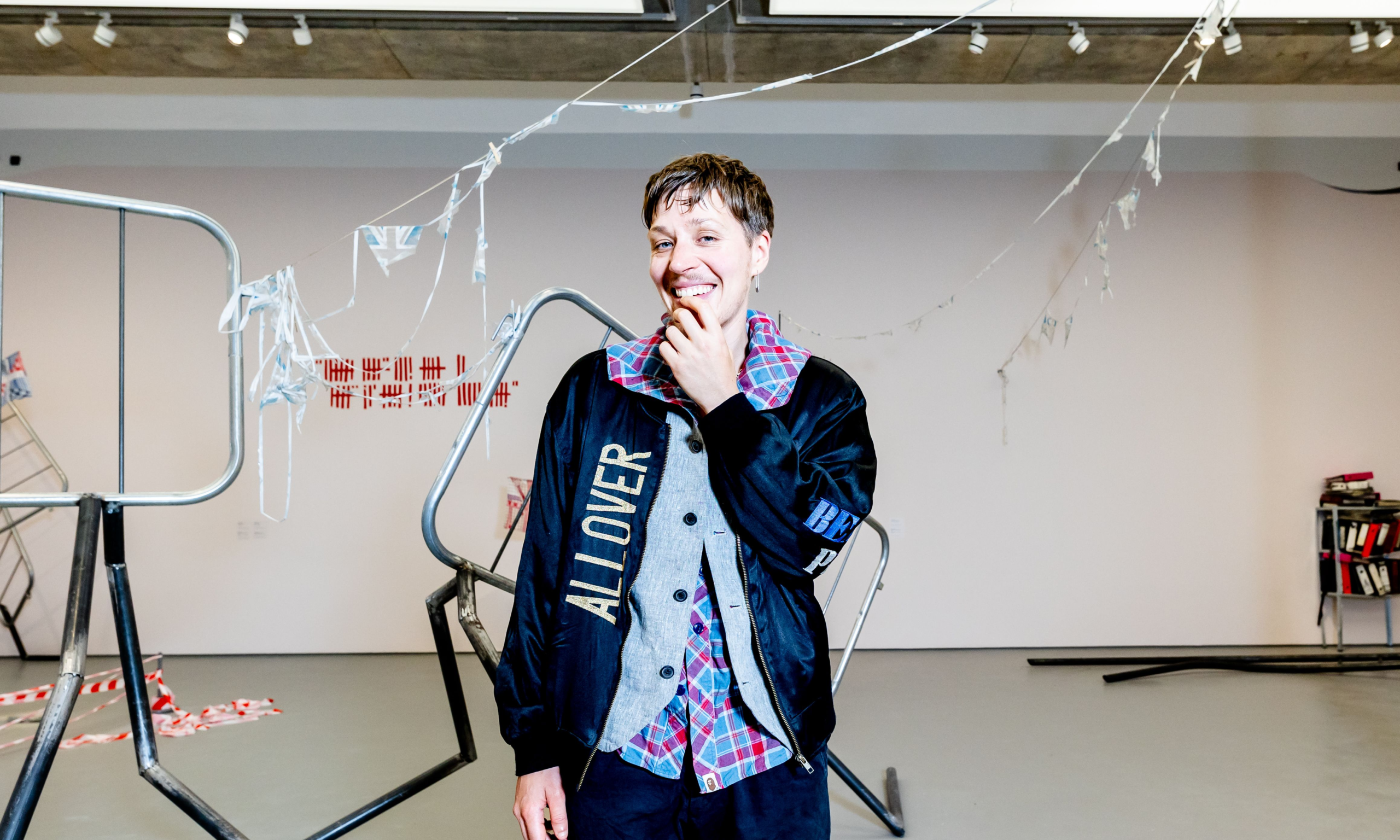Jesse Darling
Photo: Hello Content
The British artist Jesse Darling has won the 2023 Turner Prize. He was announced as the winner of the £25,000 award, considered the most significant in the UK art world, at a ceremony held at Eastbourne’s Winter Garden, which is adjacent to Towner Eastbourne art gallery on the UK's south coast.
The Towner is currently hosting an exhibition of work by all four Turner Prize contenders. Darling's section sees him using motifs of the British state to conjure a dystopian end of the world environment, in which governmental attempts at control have crumbled and led to a state of chaos. It’s a nightmarish scene fashioned out of the sort of quotidian materials one finds on a walk down any city street. Crowd control barriers, broken and battered, open the show. There is barbed wire, welded concrete barriers, official-looking files that cannot be accessed, spikes designed to stop birds roosting, or, perhaps, to stop homeless people from a moment of rest.
But amid this brutalist arrangement, one can find the paraphernalia of the quiet, suburban, ever-present Britain that so many hold dear: walking sticks and old, NHS-standard crutches, net curtains, monarchy-themed bunting, Union Jack flags.
Darling's show at Towner Eastbourne sees him using motifs of the British state to conjure a dystopian end of the world environment
The Turner Prize is awarded to an artist, or group of artists, who have staged an exhibition in a UK institution over the past year. Darling was nominated for his shows No Medals, No Ribbons at Modern Art Oxford and Enclosures at Camden Art Centre. Camden Art Centre's director Martin Clark was on the jury that selected him, leading art critics to suggest there could be a conflict of interest. Darling, born in Oxford and now based in Berlin, has a long relationship with the London-based institution; he was the fourth recipient of the centre’s Freelands Lomax Ceramics Fellowship.
At the end of his acceptance speech, Darling held up a Palestinian flag while being broadcast live on air. Asked why he did this in an interview with The Art Newspaper, he referenced coverage of the ongoing Israel-Hamas war, saying: “I wanted to say something on the BBC. Because otherwise it won’t be said.”
The other members of the jury were Melanie Keen, the director of London's Wellcome Collection; Helen Nisbet, the artistic director of Cromwell Place, also in London; and Cédric Fauq, the chief curator of the Capc musée d’art contemporain de Bordeaux (CAPC). The jury was chaired by Alex Farquharson, the director of Tate Britain in London.
Darling was shortlisted alongside fellow artists Ghislaine Leung, Rory Pilgrim and Barbara Walker. Pilgrim’s multi-channel film installation depicts a large-scale musical composition made in collaboration with—and depicting the lives of—vulnerable people in the Barking and Dagenham boroughs of east London during the pandemic. Ghislaine Leung’s body of art of work mediates on the expectations placed on artists as well as the demands of parenthood. Walker, meanwhile, presents charcoal portraits of people affected by the Windrush scandal, drawn directly on the walls. Walker is planning to personally wash the drawings off at the end of the show.
Visitors to the Towner can see exhibitions of all four artists until 14 April 2024.
Established in 1984, the Turner Prize is named after the British painter JMW Turner (1775-1851). In 2024, the prize will return to Tate Britain to mark 40 years of existence.

